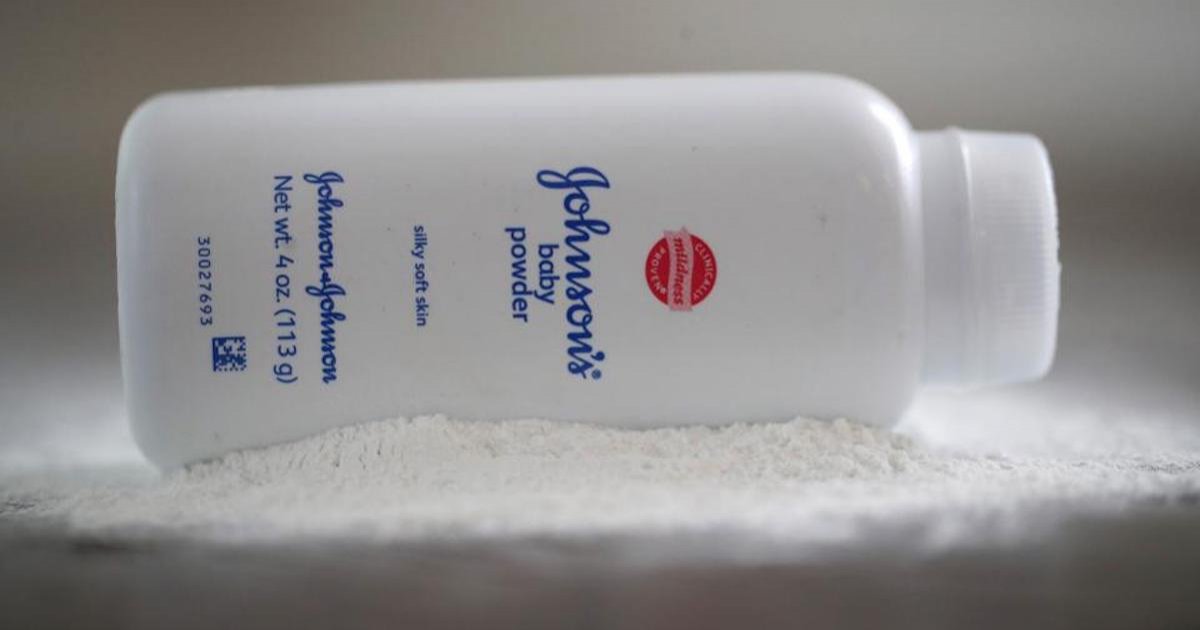Talc's Link to Cancer
- Johnson & Johnson said it would pay nearly $9 billion to the tens of thousands of people who claim that the company’s talc-based powder products cause cancers
- However, evidence that talc products are definitively linked to an increased cancer risk is still inconclusive.
- Experts tells SurvivorNet that establishing a clear link is difficult because studies rely on participants reporting on their own use of these products and recalling how much they used from memory.
- Still, experts and health agencies recommend using an alternative product if you have concerns about talc.
- Johnson & Johnson discontinued sales of its talc-based baby powder in the U.S. in 2020 and plans to stop selling it worldwide this year.
The legal action does not mean a definitive connection has been made between the company’s baby powder and cancer risk. Establishing such a connection is incredibly difficult, our experts say.
Read MoreFor more than 20 years, Johnson & Johnson talc-based baby powder has been the focus of lawsuits alleging the product causes cancer.
With this in mind, Dr. Kris Zanotti, gynecologic oncologist at University Hospitals in Cleveland, previously told SurvivorNet that consumers should feel comfortable swapping to a different product if they are at all concerned.
“At this point, if there is concern, there are plenty of alternatives to talcum powder for personal hygiene. And I do recommend them to stay away from talcum powder in the absence of any other firm information about its safety,” Dr. Zanotti said.
Here’s what to know about talc and using talc-based products.
What Is Talc?
Talc is a naturally occurring mineral that, when ground up, absorbs moisture and reduces friction. This finely ground product, known as talcum powder, became an effective ingredient in baby powders, deodorants, and other personal care products.
RELATED: Is There Science to Back Up Claims That Talc Causes Cancer?
Many of the people involved in the suit against Johnson & Johnson allege that the talc-based products they used contained asbestos, a known carcinogen.
According to the American Cancer Society (ACS), talc that contains asbestos is considered by experts to be capable of causing cancer if it is inhaled. The evidence on talc that does not contain asbestos is less clear.
What Have Studies Found on Talc Products?
Essentially, the questions of whether talc-based powders cause cancer has yet to be answered. Studies have been conducted to look into whether it causes gynecological cancer, like ovarian cancer, and lung cancer, and have led to conflicting results.
In a previous conversation with SurvivorNet, Dr. Zanotti said that it’s difficult to gauge how much something like a powder impacted someone’s cancer risk since those studies have to rely on participant’s self reporting.
“These studies are pretty difficult to do because they require women to recall their talc use and quantify their talc use sometimes 20 and 30 years earlier,” Dr. Zanotti explained.
Dr. Kris Zanotti explains that evidence linking talc-based powder to cancer has been inconclusive.
“Definitive data cannot be done on studies of this kind, which are recall studies, [that] have patients trying to recall their past exposure and linking it to a current health problems they may have,” she added.
“However, there is concern, any concern, that irritation of the ovarian cells lining the ovary can be associated with cancer, and talc crystals can be an irritant. Past infections, like pelvic inflammatory disease, can also be an irritant associated with subsequent downstream ovarian cancer. So it is plausible that there may be a link. If there is a link, that link is probably fairly weak, but it may be there.”
RELATED: Are Talc Products Linked to Mesothelioma?
What Do Experts Say About Talc Products?
Johnson & Johnson has stopped selling its talc-based baby powder in the United States and plans to stop selling it globally at some point this year. Its current version of the product contains cornstarch instead of talc.
Expert agencies tend to agree that evidence is not conclusive on the cancer risk associated with talc products, but people should be wary of products they fear aren’t safe.
“Studies of personal use of talcum powder have had mixed results, although there is some suggestion of a possible increase in ovarian cancer risk. There is very little evidence at this time that any other forms of cancer are linked with consumer use of talcum powder,” the American Cancer Society states. “Until more information is available, people who are concerned about possible links between talcum powder and cancer may choose to avoid or limit their use of consumer products that contain it.”
Dr. Zanotti offered similar advice, noting that it may be wise to simply use an alternative product.
“What I tell patients is, well, at the time when talc powder was first introduced for public use, people did not understand the possible association to ovarian cancer,” she said. “At this point, if there is concern, there are plenty of alternatives to talcum powder for personal hygiene, and I do recommend them to stay away from talcum powder in the absence of any other firm information about its safety.”
Learn more about SurvivorNet's rigorous medical review process.





